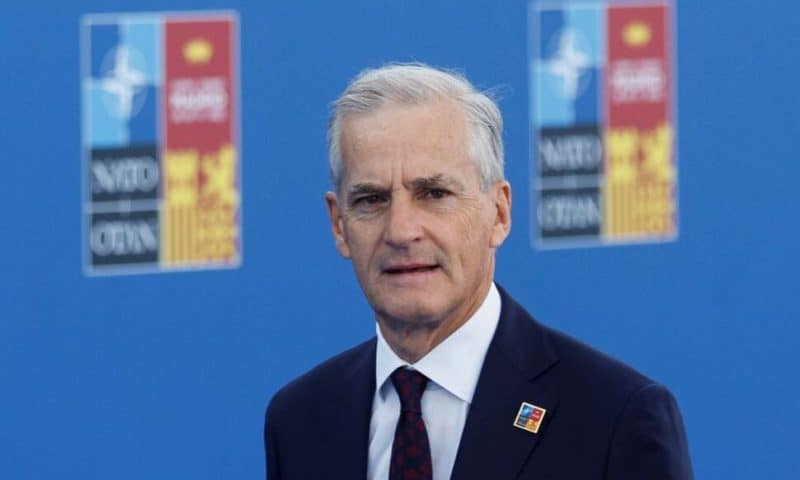OSLO – Norway’s government aims to levy a 35% resource tax rate on the profits of salmon and trout farmers, it said on Tuesday, down from an initial proposal of 40% which sharply hit fish farming stock prices when announced last year.
Aquaculture licences awarded by the state give companies a chance to profit from public resources, and governments on the left and right have considered imposing extra taxes on the fish farming industry in recent years.
Norway, the world’s largest producer of farmed salmon, harvested 1.5 million tonnes last year according to industry data, ahead of Chile with around one million tonnes.
Norway’s centre-left Labour-led government must now negotiate a final deal in parliament before a tax takes effect, but it is clear there is a majority in favour of taxing the industry more heavily.
“We have a long tradition in Norway in which value that is created from using our common natural resources shall benefit society as a whole,” Prime Minister Jonas Gahr Stoere said in a statement.
“It is now the time to introduce a resource rent tax for the aquaculture industry.”
Fish farmers have lobbied against a resource tax, which comes on top of a regular 22% corporate tax, saying it will hamper investment and hurt an industry that has brought jobs and wealth to costal communities at risk of population decline.
The government last September estimated that the extra profit, or resource rent, earned by the fish farming industry in 2021 from privileged access to natural resources amounted to 11.8 billion Norwegian crowns ($1.13 billion).
The government has said it would prefer to negotiate with a broader group of parties in parliament to ensure that the tax is not reversed at a later time, but the main opposition Conservative Party said it rejected the government’s model.
The alternative for the government is to reach a compromise with the smaller Socialist Left Party, which strongly supports a tax.

